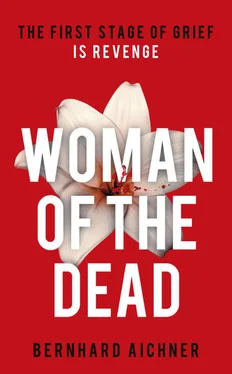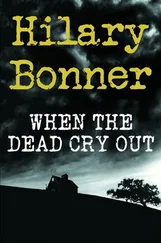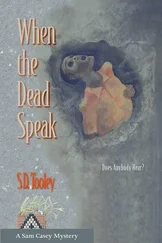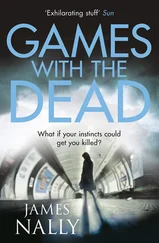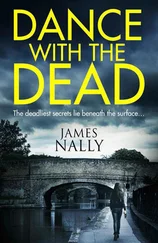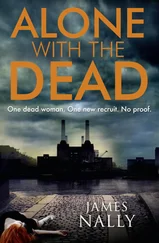How green the moss was. Schönborn waited for her to undress. Everything was out of control, she was panic-stricken, she had overreacted. Blum knew she had to do something. He simply had not gone to sleep, he was full of energy, the solvent didn’t seem to affect him at all. So she would have to undress. She didn’t want to let things get that far; the game must end, she must make a decision. She wanted to see him unconscious on the ground; she would ask him questions later and insist on answers. She wanted to know who the others were. Where that cellar was. What had happened to Youn.
She couldn’t run away, so she acted quickly. When Schönborn bent down to take something out of the camera case, she struck. The stone had been there, lying on the ground beside her, and it hit Schönborn on the back of the head. The scene was just as she had pictured it, but with less blood. He didn’t fall gently asleep, he dropped to the ground with a thud. He fell over forward and collapsed almost without a sound, as if the air had been let out of the monster. He lay there motionless, and without hesitating she began to tie him up. Hands, feet, she rendered him defenceless as she trussed the pig up for roasting.
She got the stretcher out of the hearse and set it up beside him. She pushed with all her might, bracing her body against his. Blum cursed, shouted, spat at him. It was no good; Schönborn was too heavy, and she felt her strength drain away. She had thought it would be easier; in her mind it had been simple enough, but the reality was uneven ground full of roots, and ten metres away from the hearse. Blum was on the point of giving up, leaving him where he was and phoning Massimo. There were tears in her eyes. She spat at him once more, and then she managed to get him on the stretcher. She put one end of it on the loading area of the hearse, raised the other end, and then the bastard disappeared into the vehicle. She loaded him up as best she could, his limbs sprawling and hidden under a blanket. Edwin Schönborn was on his way to the Funerary Institute. Blum was sure that this was the right thing to do, that she had no other option. Basically, all was well.
She cuddles the children as they fall asleep. Looks at their contented faces before going back to him. Down the stairs, over to the cool room. Over to the door, which she slowly opens. She just stands there for a long time, staring at him. She doesn’t move, she only looks. Because she knows she has waited too long, that she ought to have come back sooner to bring him round, to get his circulation going. Blum knew as soon as she opened the cool room door that he would not have survived for over four hours at five degrees with the influence of the drug and with his head wound. He is like all the other dead bodies she has seen in her life, cold flesh, skin and bones. No heart is beating in the cool room now, there is no sign of life, all she can hear is the engine regulating the temperature. All she sees is his face, his mouth gaping open. Open, but wordless, because he is dead.
Blum doesn’t know how long she stood there as if paralysed. Perhaps half an hour, perhaps longer. Desperately, she tries to grasp the fact that she is responsible for this. For his silence, for the fact that he is dead. She calls Massimo’s number. Please come to me , she says. I’ll be with you in twenty minutes , he replies.
It’s the middle of the night and Massimo has left. There is blood everywhere. The hydroaspirator sucks and sucks. Blum has opened his stomach cavity and removes the intestines, then puts them in a blue garbage bag. Kidneys, liver, everything she finds goes into the bag. She fixes the aspirator in the cavity with a clamp. Large quantities of blood and other bodily fluids disappear through the tube into the canalisation. She opens the chest cavity with diagonal pliers, removes the heart and lungs, and empties the torso before sawing it into small pieces. She cuts through the bones with Hagen’s power saw; blood spurts and runs into the tub. She sucks out his flesh and his fat, saws off his horrible head. Without pity or hesitation she takes him apart, cuts him into pieces and packs them up, neatly and hygienically, soaked in a formalin solution. Blum is preserving him; she doesn’t want people to notice the smell.
She cleans up until dawn. In a few hours Reza will be back from Bosnia, and there will be two funeral services and two burials this afternoon. He mustn’t suspect a thing, she must leave everything the way it was before he left. Blum gets out the coffins in the cool room. The idea had suddenly occurred to her as she was lying naked beside Massimo. Blum saw it all before her eyes while Massimo caressed her. She would put Schönborn’s legs, organs and head into the coffin with the old lady. The pieces of his torso and his arms in the coffin with the man who died in a mountain-climbing accident. Edwin Schönborn, packed up and preserved, hidden under white blankets with baroque trim. It is the idea that will save her, the only way to escape prison and be there for her girls. She had to do it.
Blum takes the packages and stows them in the coffins. She wedges the body parts between the corpses’ legs, ties them in place and hides them. He will be concealed for ever. Blum closes the lids of the coffins and screws them down. No one will ever find him; it was a stroke of genius. There’s no better place for a corpse than a coffin in a graveyard. No one will look for him in the grave of a former teacher or an old lady. No one will suspect a thing. Blum smiles. Exhausted but happy, she pushes the two coffins back into the cool room. Nothing has happened. Everything is all right.
No one has noticed a thing. No one knows that Massimo lay naked beside her. That they kissed each other. The children have no idea, and nor does Karl, who was fast asleep in his armchair. Blum covers him up before going back to the children. She lies down beside them, and smiles when they open their eyes. Mama will look after you. Mama loves you. Now Mama is going to make breakfast for her little mousies. Blum puts her arms round them and gives them a hug. How innocent they are. How small. How far away Schönborn’s body seems. She thinks of the scalpel cutting through his fat.
In a few hours’ time he will disappear underground. In a few hours’ time she and Reza will drive to the cemetery and see him off with all the formalities: wreaths, candles, eulogies for the two dead people sharing their coffins with that bastard. Reza has written the eulogies and Blum will deliver them. She will speak solemnly about the lives of the departed, but she will be thinking of Schönborn. She will accompany him to the grave and watch the bearers lower the coffin. His legs and his head at two in the afternoon, his torso and his arms at four. Two burials and then Schönborn will be history.
Blum will burn his clothes and go to his apartment. In the evening, when the children are asleep, she will unlock the apartment with the key she found in his jacket pocket and wipe away any traces, cleaning everything she touched. And she will look for the photographs, for the evidence that she still doesn’t have, for the photos telling her what Schönborn couldn’t tell her now. Blum must find them and make sure that justice is done. For Mark. For Dunya.
Dunya doesn’t ask what Blum is going to do, what her plans are now that she has found the man. Dunya doesn’t want to know. When Blum brings up the subject she dismisses it. Blum wants to tell her that she can’t do anything, that she doesn’t know how to help, that her hands are tied. She wants to lie, but Dunya waves her lies away, puts her forefinger to her lips and shakes her head. No, please no. Her fear is in her eyes, she has no more words for it, they have all been spoken. Blum is glad not to have to explain. Dunya is grateful too. She offers to go shopping, she wants to make herself useful. With her head lowered, she takes the money that Blum gives her and leaves the house. Bread for breakfast, eggs, orange juice. Everything seems to be in order; the storm is over.
Читать дальше
